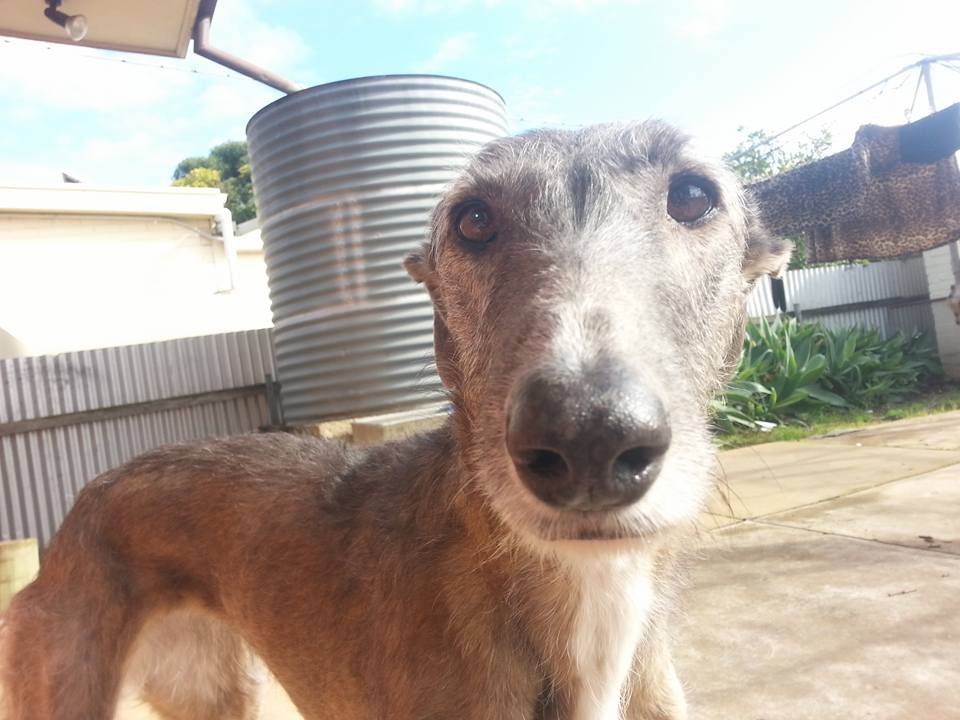Building Blocs Feature Editor Katerina Bryant on greyhounds, great writing, and writing wrongs
When I think of my life, I can’t help but think of that niggling list of regrets. Buying a guitar on a sweeping gust of ambition only to realise I sucked; throwing out every screwdriver in the tool box because ‘how often will I need that’ (the answer was, and still is, pretty regularly); those bitter mistakes I made when I started my writing career.
In my list of regrets, a real doozy, is the time I sent a woefully inappropriate pitch to topical news site Junkee. I was nineteen and I wanted to write about classical literature. No modern take; I just wanted to express my opinion on Austen to a topical news site. I was lucky to get the kind, ‘have a look at our site and keep pitching’ response I did. But really, my greyhound could have written a more nuanced, thought-provoking pitch.
So here I am, five years later and a whole lot more informed as the Building Blocs feature editor. Like a new parent who doesn’t want to repeat the past (and on that note very much unlike Jay Gatsby) my job is to make sure you, dear reader, don’t make the same mistakes I did. On Building Blocs, myself and some experienced mistake-makers will be delivering practical, honest advice to keep you writing and (if all goes well) the acceptance letters rolling in. So to get the ball rolling, here are a few things I’ve learnt along the way.

You can find Suzie the Greyhound's work in The New Yorker, Meanjin and The Lifted Brow.
1. Always submit your best work
It’s tempting to save your show-stopping piece for The New Yorker but, as time goes by and you develop your craft, the show-stopper changes and grows with you. Don’t rank publications and submit what you deem to be suitably good work. Always put your best work forward. If accepted, your short story/poem/essay/cartoon caption can be honed by your editor and made even better. And if you’re not submitting your best work and it does get accepted, that will be on the internet for all time. Just because it isn’t The New Yorker, it doesn’t mean that publication you thought you were too good for doesn’t have killer SEOs.
2. Write everyday… kind of
A well-known phrase, ‘write everyday’ has been repeated by literary greats like Ray Bradbury as well the convener of your local writers group over and over. But this can be counter-intuitive. Sometimes an unattainable word count plastered on the top of the page doesn’t help creativity but instead stifles it. So write, if you can, every day. But sometimes it’s best to read, reflect, pay the rent, grab a coffee and then, finally, write.
3. Follow up emails get you everywhere
This piece of advice comes with a small caveat: follow up emails apply to nonfiction folk only. Submitting fiction to literary journals can be a process that stretches into months and this can’t be sped up with a well-timed email (however, this has its own benefits as sometimes by the time the rejection comes you’ve already forgotten you submitted). If you’re regularly pitching to journals or magazines, record where your pitches are going and if you hear nothing after a week or two, send a polite follow up email. Even if your pieces are turned down, you may get feedback to further hone your idea and you’ll know how to contact that editor when you come up with an even better idea.
4. Read the pubs
Nothing gives you a better sense for whether your voice will fit within a publication than reading it. It’s tired advice, but it will get you further than you can imagine. Knowing that The Canary Press only publishes fiction or that Voiceworks is geared towards under 25s will save you a lot of time and energy.
You can pick up copies of Australian literary magazines at your local bookshop or get them delivered to your door with a discount if you pay for a subscription. Some great places to start are Voiceworks, Kill Your Darlings, The Lifted Brow, Meanjin, The Canary Press and Island. But of course, if you’re a young writer you may not be in the financial position to support your reading habit. Luckily, you can find journals at your local library, online on research engines at local universities and even, as I like to do, in second-hand bookstores for a couple of dollars. You can even found your own subscription club with like-minded friends. The rules are easy: each person subscribes to a journal, every month you share and swap, and then BAM you’ve conquered the Australian lit market. Journals also often republish or run extracts of content online, so there is no excuse not to read what is being put out there. And once you consistently start reading the work of your peers, you may find yourself not only better informed but also more inspired.
Let us know in the comments if you’ve ever regretted anything you’ve pitched or submitted in your writing career so far. Have you signed up to our newsletter or Bloc Boost, our writing job and opportunity subscription service? Sign up and minimise your regrets . You'll never miss a writing opportunity again! And if you have suggestions for Building Blocs, you can email us at [email protected] or tweet us @writers_bloc.
Katerina Bryant
Katerina Bryant is a writer based in Adelaide and Writers Bloc's Writing Development Manager. Her work has appeared in the Griffith Review, Kill Your Darlings and The Lifted Brow, amongst others. She tweets at @katerina_bry.

